The Ultimate Guide to R11 Porcelain Tiles
Posted on 14 July 2025 | Author: Jaya Tripathi

One of the most hectic things to finalize while renovating or constructing a home is finding the perfect tile material for some specific areas, such as bathroom floors and kitchens, where there will be more moisture and chances of slipping. So to avoid any such accident, it is crucial to choose that one tile material that goes well with the requirements.
When it comes to flooring in high-moisture environments, R11 porcelain tiles with their exceptional slip resistance are the ideal choice. In this comprehensive guide, we will get into detail about the world of R11-rated porcelain tiles, exploring their unique features, benefits, and versatile applications.
Whether you're planning a bathroom, kitchen, pool area, or any other wet space, join us as we discover how R11 porcelain tiles can elevate both safety and aesthetics, helping you make an informed decision for your next project.
Understanding R11 Rated Porcelain Tiles
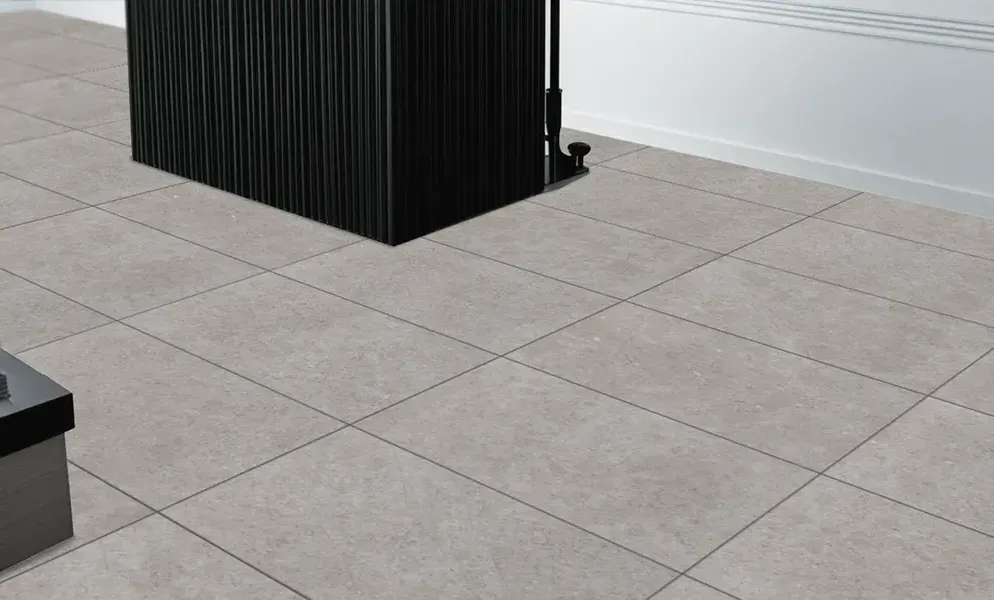
To know what importance these durable yet stylish porcelain tiles have, let's first understand the R11 tiles meaning. To be precise, R11 refers to the classification system that is used to assess and determine the slip rating of porcelain tiles. R11 outdoor tiles provide a high level of traction that ultimately removes the risk of accidents in any commercial or residential space.
1. Applications of R11 Porcelain Tiles
Residential:
- Kitchens
- Bathrooms
- Entryways
- Laundry rooms
- Swimming pool surrounds
Commercial:
- Retail stores
- Restaurants
- Hotels
- Hospitals
- Office buildings
- Gyms and fitness centers
2. Benefits of R11 tiles
Now that you understand the meaning and application areas, let's now begin with what benefits having R11 tiles offers.
- Safety while Walking:
R11 tiles, as we mentioned before, reduce the risk of slipping while walking even in moisture-prone areas like a natural rustic surface of a natural stone, which offers a safer floor to walk on.
- Durability
R11 porcelain tiles are not only safe but are also durable, as they are engineered to the level of hardness that makes their surface hard and dense, making it further hard to crack, break, or chip, and they can also last for long years to come.
- Versatility
R11 tiles offer great versatility of uses and can be used in various application areas. From bathroom vanity to kitchen flooring to pool surrounds, you can use these tiles in all spaces.
- Aesthetics
Sometimes when we think that material is strong, it cannot be beautiful, but that is not the case with R11-rated porcelain tiles, as they not only offer great slip resistance and strength but also come in a wide range of patterns and designs that help in improving the overall look and aesthetics of any space.
- Ease in maintenance
Last but not least in benefits, R11 outdoor tiles are easy to clean and maintain. They can be easily cleaned using homemade or easily available products such as mild detergent and soap and don't require much effort and time in cleaning as well.
Understanding Slip Resistance and R11 Tile Ratings
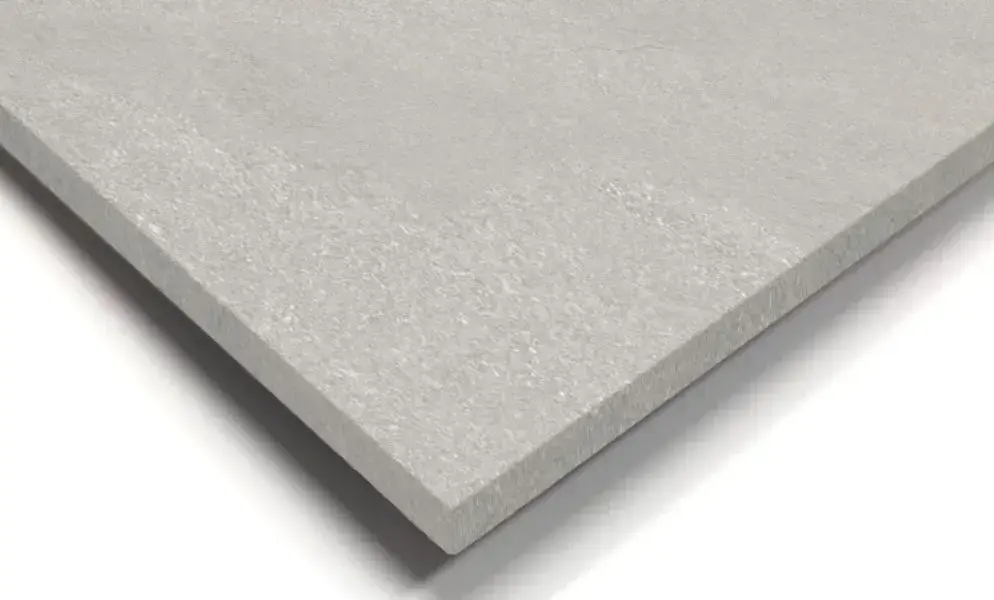
There is a connection we have between the slip resistance and R11 tiles, so let's begin with knowing what it is:
1. The Pendulum Test
The pendulum test is done to measure the slip resistance of a floor. It usually measures how much friction there is between a floor and a pedestrian's heel. Usually, a swinging arm with a rubber slider is used to measure the traction that strikes the floor.
A PTV, which means a pendulum test value, is assigned to the amount of friction quantified during the strike. This value signifies the approximate potential risk of the accident.
2. R11 tile rating significance
R11-rated porcelain tiles signify a high resistance to slipping even when the floor is wet. Understand the R11 tiles meaning, meaning that the tiles you are buying or using are anti-slip tiles, like stepping stones in the garden.
Read More: Types of Natural Stones
Choosing the right R11 porcelain tiles for your specific needs
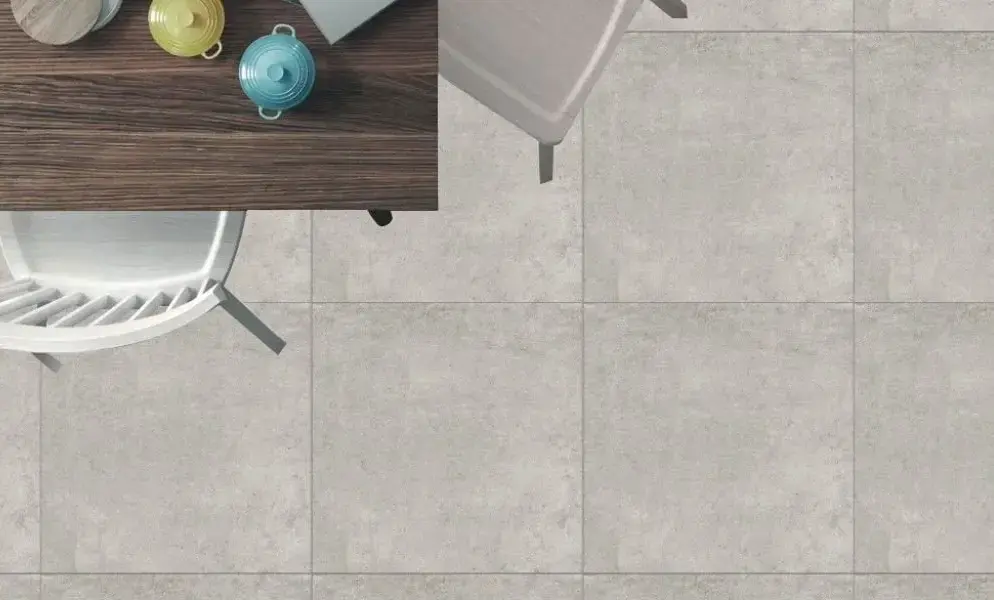
Now that you have understood what R11 porcelain tiles are and their benefits, it is time to choose the right tile for your personal and professional space:
1. First consider your needs:
- Traffic level:
Look where you are going to use your R11 tiles, whether it is at a commercial space, a residential one, or a place with higher traffic areas, and choose the tile that better resonates with your traffic level well with the required and optimal finish as well.
- Aesthetics and design preferences
Look for the type of style you want to have in your space, whether it is minimal, something bold, or simple yet classic. R11-rated porcelain tiles come in a wide range of options to choose from for your specific requirements, so choose the one that better goes along with your decor well.
- Budget Constraints
The budget is a vital thing that we need to keep in mind while selecting any tile option for our project. R11 porcelain tiles come in different sets of costs depending on their availability and the location you are demanding the product at. So choose the one tiling option that aligns best with your budget and perfectly fits in the set range as well.
- Installation Location
The choice of tiles also depends on the location of installation and use. Consider where you will be using R11-rated outdoor tiles, whether it is indoors, outdoors as paving stones like we use natural stone paving, or in any other specific area. And then choose the one that can last longer based on the use and location.
2. Some Factors to Consider
- Tile size and shape
Consider the correct R11 tile size and shape for your personal or professional space and projects. It is good to go for a professional opinion in case of any confusion or doubt.
- Finish That Suits Well
Considering and choosing the right finish for R11 porcelain tiles is also essential to refer to what type of look and style you require in your space. Choose between matte, textured, and polished porcelain tile to serve the best purpose for the use.
- Color and Pattern options
Color and pattern options play a vital role in deciding the aesthetics of any area, so it is important to choose the one that goes better, either complementing or contrasting the surrounding elements. Choose those R11-rated porcelain tiles that make your space look visually appealing and beautiful.
Read More: Most Popular Quartz Countertop Colors
3. Installation Considerations for R11 Outdoor Tiles
To fully leverage the benefits of R11 anti-slip porcelain tiles, proper installation is crucial. It is recommended to hire professional tile installers experienced in working with this specific tile type.
They will ensure proper substrate preparation, suitable adhesive selection, and correct grouting techniques, guaranteeing a secure and long-lasting installation.
While R11 tiles offer excellent slip resistance, it’s important to practice caution, especially in wet conditions. Compliance with ADA requirements or local building codes for slip resistance in specific areas should be taken into account.
Maintenance Tips for R11 Porcelain Tiles
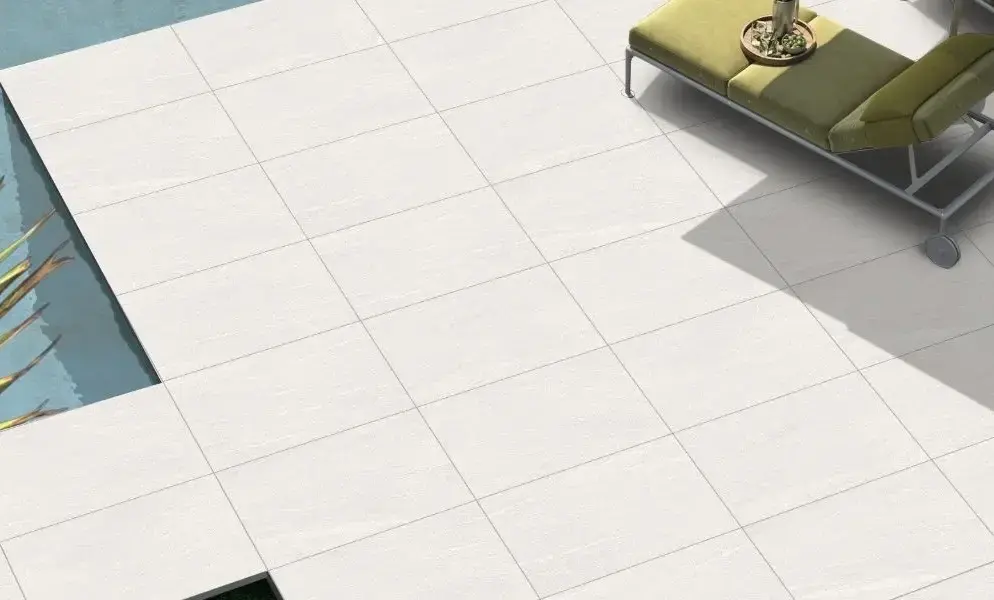
Now let's look at some maintenance tips that we have to follow to keep our R11 tiles in great condition for years to come:
- Regular cleaning routines.
You can easily clean your R11-rated porcelain tiles with a mild soap or detergent by mixing it in warm water and then cleaning the surface using a soft brush, then rinsing it with clean water and drying it up. You can follow this cleaning routine once or twice a week based on the usage.
- Stain removal methods.
Sometimes, when we spill something over the surface and they left the mark behind, it's hard to deal with them. You can use a few methods, such as using baking soda, mild soap, or a gentle stain remover. Keep the paste for around a few minutes until it dried up a bit and then wipe it off. After that you can rinse the surface with clean water and also repeat the task in case of stubborn stains.
Difference between R11 tiles and vitrified tiles?
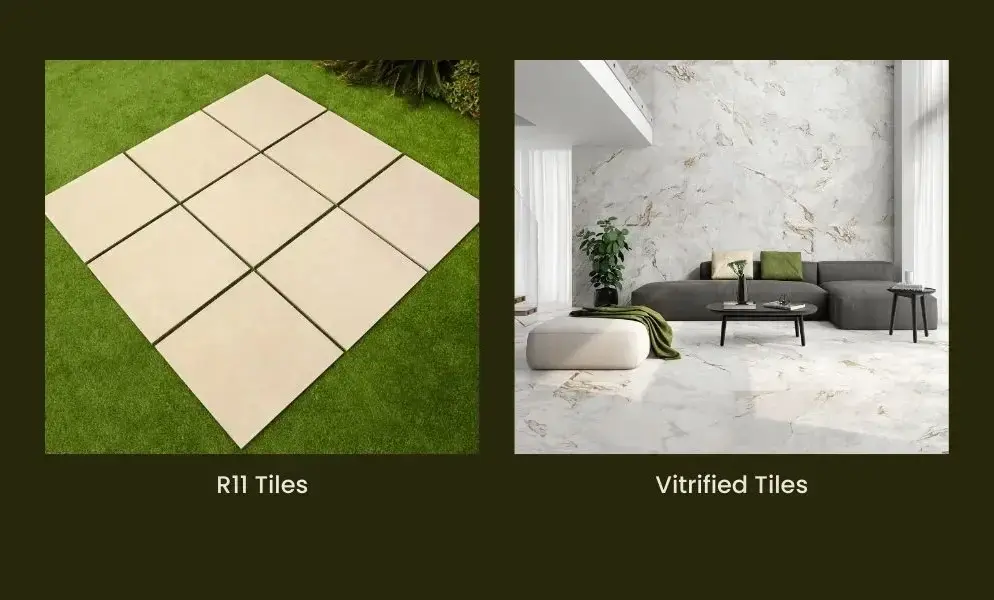
R11 porcelain tiles and vitrified tiles are both popular options for flooring in both residential and commercial areas, but they have some differences. Here are the key differences:
1. Composition
Porcelain tiles are made of a mix of clay, feldspar, and other natural materials and have been baked, while vitrified tiles are made of a mixture of clay and other minerals such as silica, quartz, and feldspar and have been vitrified. The clay content in vitrified tiles is usually higher than in porcelain tiles.
2. Strength
Vitrified tiles are comparatively stronger than R11 tiles because they are fired at higher temperatures, which results in denser and relatively stronger flooring material. Vitrified tiles are also less porous than porcelain tiles, which makes them more resistant to stains and moisture.
3. Slip resistance
These tiles are specifically designed in such a way as to provide slip resistance, making them a popular choice for most outdoor and wet areas. Vitrified tiles, on the other hand, do not have a specific slip resistance rating, although they can be treated with a non-slip coating if needed.
4. Design
Both tiles are available in a wide range of designs, colors, textures, and patterns like marble slabs or limestone tiles. However, porcelain tiles are often more popular for decorative purposes, while vitrified tiles are commonly used in commercial and industrial settings due to their durability and strength.
5. Cost
Vitrified tiles are generally more expensive than R11 porcelain tiles, although prices can vary depending on the specific design. Vitrified tiles can be more expensive due to their durability and the materials used during manufacturing.
Overall, the choice between R11 porcelain tiles and vitrified tiles depends on your specific needs and preferences. If you are looking for a slip-resistant tile for outdoor or wet areas, R11-rated porcelain tiles may be the best choice.
Conclusion:
R11 porcelain tiles are the ideal choice for slip-resistant flooring in areas with moisture exposure. If you're in search of high-quality R11 porcelain tiles, MPG Stone is a renowned name in the industry, offering a wide range of tiles, slabs, and stones worldwide.
By considering the unique features and benefits of R11 porcelain tiles, you can make an informed decision and create a safe, stylish, and durable space. Feel free to comment below if you have any further questions.
About The Author
Jaya Tripathi is a seasoned content writer and editor with over a decade of experience in the stone and real estate industries. As a leading voice at MPG Stone, she shares insights on installment processes, project insights, design guides, and much more






Comments
No comments yet.
Leave a Comment